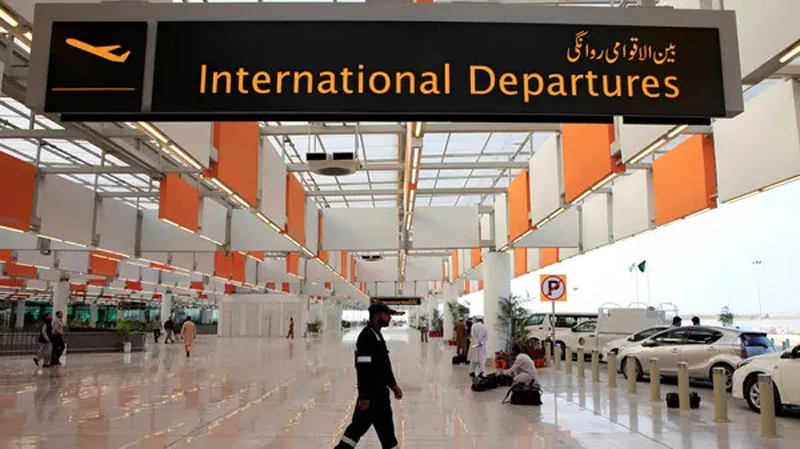The teachings of Islamic civilization are that one should raise their children on the values of religion and love. But now we are raising our new generations on the values of power and capital. The Quran says that the world is nothing but a delusion. The Prophet (PBUH) said, were this world worth the wing of a mosquito in the sight of Allah, He would not have given the disbeliever even a sip of water. But now, parents instill the love of the world in their children’s hearts from day one. Relatives make children understand that the world is everything. Teachers educate children to study well so they can earn well in the world. The media is keen to make the love of the world the purpose of life. As a result, we are producing generations for whom religion, civilization, history, parents, relatives, and friends have no significance. For them, power is important. For them, benefit lies in wealth. For them, love is for the world. But this is only one aspect of the problem.
The second aspect of the problem is that Pakistan came into existence in the name of Islam. Pakistan’s Islamic ideology, commonly known as the two-nation theory, had defeated the then-sole superpower of that time, Britain and the Hindu majority. It turned Muhammad Ali Jinnah into a great leader (Quaid-e-Azam). It united a crowd into one nation. As such, this ideology could have made Pakistan a state that would have been an example, a model for the whole world. But Pakistan’s generals and the politicians created by them did not even give importance to the country’s ideology. As a result, the potential of Islam could not be realized in the Islamic Republic of Pakistan. Neither did Pakistan witness the supremacy of the Quran and Sunnah, nor did justice prevail. Islamic brotherhood and equality were not established in Pakistani society. A good education could not be ensured, nor could the economy be stabilized, nor could a welfare state be established here. As a result, ideological love and attraction for Pakistan could not be created among the people of Pakistan. Patriotism or nationalism is considered the worst thing from an Islamic point of view, but Pakistan’s generals and their created politicians could not even make the Pakistanis nationalistic. If Pakistan’s rulers had made Pakistan an ideological state in the true sense, people might have died of hunger in Pakistan, but they would never have left Pakistan. Can’t you see that the religious fervor created by Palestinian resistance forces in Gaza is so strong that Israel has destroyed the whole of Gaza, but not a single inhabitant of Gaza is ready to leave it? The entire population of Gaza is deeply attached to Gaza. So much so that even five people in Gaza have not protested against Palestinian resistance forces by saying that you have destroyed us at the hands of Israel. This is ideological affiliation. This is ideological love.
A country or nation is like a family, and the family’s magnetism is extraordinary. It is so extraordinary that even animals feel its attraction. Just a few days ago, newspapers published the news that a baby elephant in some African country got stuck in a swamp while drinking water from it. Seeing this, the whole herd of elephants gathered around it and all the elephants started trying to rescue the baby, and after hours of hard work, they succeeded in rescuing the baby from the swamp. This is called family. That is why Saleem Ahmed has said:
کشش گھر کی بلائے گی تو کوئے نامرادی سے
پلٹ کر آئیں گے خانہ خراب آہستہ آہستہ
But in 75 years, Pakistan’s self-centered and arrogant generals and the politicians created by them could not make Pakistan a family. In this context, Pakistan’s condition is like the verse of Jaun Elia:
مجھ کو تو کوئی ٹوکتا بھی نہیں
یہی ہوتا ہے خاندان میں کیا
(No one even objects to me,
Is this what happens in the family?)
As a result, in 1971, Bengalis bid farewell to Pakistan. But despite scolding and beating Pakistan, Pakistan’s generals could still not make the remaining Pakistan a family. Its solid and irrefutable proof is that we are not one nation. We are Punjabi, Muhajir, Sindhi, Pashtun, Baloch, Siraiki, soldiers, and civilians. That is why in Pakistan there is no family-like connection.
For a human being, dignity is extremely important but in Pakistan, no one except generals has any dignity. Whenever the generals want, they remove the civilian prime minister from power. After the 1970 elections, instead of making Sheikh Mujib the prime minister, they arrested him and put him in jail. They hanged Bhutto. They removed Junejo from the Prime Minister’s house and now they are busy defaming Imran Khan. The common man’s experience is that whenever a common policeman wants, he stops him on the street and humiliates him. A traffic constable issues a challan even when he has all the necessary documents and papers. In a government office, an ordinary clerk does not even do his small legal work and on the contrary, makes him run around the office. As a result, a large number of citizens have become disillusioned with the country’s overall system and as soon as they get the opportunity, they flee from the country. The knowledge and observation of ordinary people tell them that even an ordinary person is respected and dignified in Western countries.
According to a PILDAT survey, when students in Pakistan were asked about the main reason for leaving their country, 52.4 percent said Pakistan is under a tough economic situation and has limited prospects for building academic & professional future for students. So they have no academic or professional future in Pakistan. While 20.5 percent of students said they were going to another country for a better economic lifestyle. In this regard, according to the statistics, 35.8 percent in Punjab, 36.5 percent in Islamabad, 43.6 percent in Azad Kashmir, and 42 percent in Balochistan want to leave Pakistan. The sense of “respect” is also very strong among the students and 43.6 percent of Pakistan’s students want to settle abroad to gain respect. According to the survey, the number of students leaving the country for respect is 55.9 percent in Sindh and 51.9 percent in Balochistan. (The News January 18, 2024)
Experts believe that in the coming years, due to the environmental crisis, 14 crore people from South Asia and Africa may settle in foreign countries. According to the United Nations, the trend of migration is increasing with the passage of time. In 1990, the number of migrants globally was only 2.8 percent. However, by 2020, this figure had increased to 3.6 percent.
Dear TNT Reader,
At The News Tribe, our mission is to bring you free, independent, and unbiased news and content that keeps you informed and empowered. We are committed to upholding the highest standards of journalism, as we understand that we are a platform for truth.
Apart from independent global news coverage, we also commit our unique focus on the Muslim world. In an age marked by the troubling rise of Islamophobia and widespread misrepresentation of Muslims in Western media, we strive to provide accurate and fair coverage.
But to continue doing so, we need your support. Even a small donation of 1$ can make a big difference. Your contribution will help us maintain the quality of our news and counteract the negative narratives that are so prevalent.
Please consider donating today to ensure we can keep delivering the news that matters. Together, we can make a positive impact on the world, and work towards a more inclusive, informed global society.
Donate Monthly Subscription Annual Subscription





